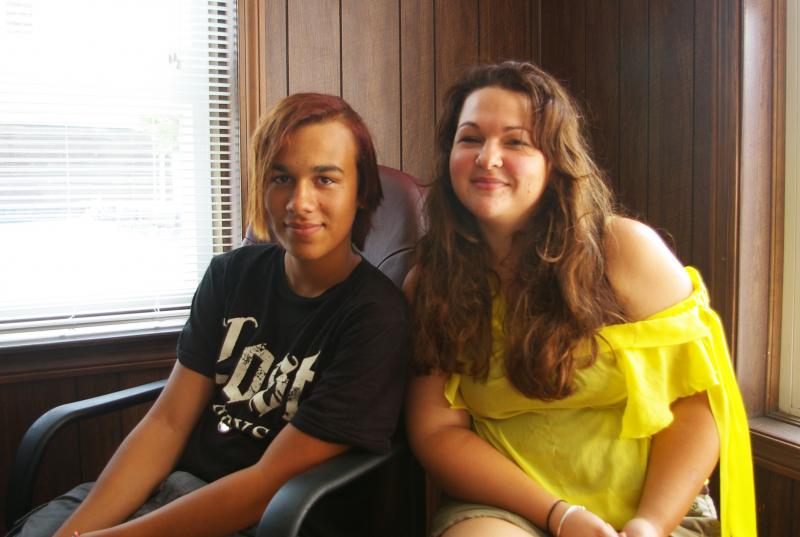'Famine' to hit the Emmanuel Assembly of God

Teenagers from the Emmanuel Assembly of God in Onset will be going hungry this summer.
That's because they are participating in the "30 Hour Famine," a national program and fundraiser that is meant to teach them about the problem of hunger that many of their peers around the world must face.
The program is sponsored by World Vision, a Christian humanitarian organization.
"For these children, they don't know when the next time they'll get food is," said Tabitha Kelley, the Emmanuel Assembly of God Youth Director who, along with assistant 16-year-old Tyrone Cabral, is helping to coordinate the program.
"My hope for the teens is that as they grow, they'll remember this experience. They'll understand that there is a lot of poverty out there, and they'll have the heart to want to help those people."
Approximately 20 people from the Assembly of God have signed up for the nationwide "famine." Eleven of them are kids.
At first the kids were a bit reluctant to participate, said Cabral. But now, "they're starting to get excited about it," he said.
Children as young as seven have signed up for the program.
The fast is meant for ages 12 and older, however, so juice and soup will be available for the younger kids as well as to avoid health risks.
The adults hopped on the bandwagon once they saw the enthusiasm of the youth. "They're almost competitive with the kids," said Cabral.
The teens will spend 30 hours without food starting on August 17. They will also spend two hours in a service project cleaning up trash at Onset Beach and Lopes Field.
The kids will fill their 30 hours by playing board games, praying, and watching movies about hunger worldwide.
One of those activities will help them gain further insight into the challenges of living in a developing country.
Called "Tribe," the game requires players to complete a task while mimicking a "handicap" that a child in a developing country may face.
For example, a teen may have to mimic a child with impaired vision who must fill a bucket using water from a river, said Cabral.
The teen would then put scotch tape over his or her glasses to mimic the impaired vision and use a paper cup to fill a five gallon bucket.
Though it may seem intense, the fast and the game are the best way to truly understand what children worldwide must go through, said Kelley.
"When you're doing something and you're divulged into it…you're not just learning, you're participating in it," said Kelley. "If you learn it in a book, it doesn't make it all that personal."
Cabral agreed.
"I'm just excited to be able to relate to them," he said.
Kelley also hopes the experience will teach them to value the services that are available for people at home.
"Our country kind of shelters us from the realities of the rest of the world," said Kelley. "This is showing them that you should be grateful that you're living in America, where you have the help," she said.
Participants agreed to raise a minimum of $30 to participate in the fast. Because it takes $1 dollar to feed a child in a developing country for a day, said Kelley, $30 would feed a child for a month.
The children were even more ambitious, however. They all decided to set their goal to $100. Cabral has raised $360 so far.
Though Cabral said he was nervous to participate in the "famine," he also said he was excited.
"I'm not going to be able to sleep, we're going to be up all night playing Rummy," he said.












